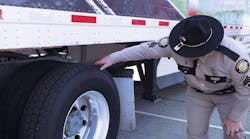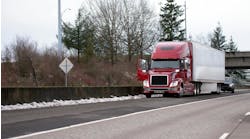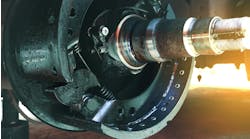Editor’s note: This is the fourth and final part in a series leading up to International Roadcheck 2019. Read Part 1, Part 2 and Part 3.
When conducting a roadside inspection, law enforcement often starts with a visual inspection, looking for dents, scratches, and cleanliness.
“If the truck is kept tidy and clean, the chances are the driver is a pretty organized driver. A truck that is in disrepair or is dirty will often get further scrutiny,” said Brian Mofford, vice president of government experience for Drivewyze and Intelligent Imaging Systems.
Fred Fakkema, vice president of compliance at Zonar, added that officers often start by looking to see if lights are working and if the vehicle is free of debris. Fakkema, who had a 25-year career with the Washington State Patrol, said it is essential for drivers to be prepared and organized.
“If you can’t find something, it slows everything down,” he explained. “On both sides, be professional. Each side has a role. Be professional and understand what the ultimate goal is. Recognize it is about safety.”
Trucks receive a CVSA sticker after going through an inspection, which Forman calls “the leave-me-alone-for-90-days decal.”
The decals serve as a sorting system for inspectors, and while inspections are at the officer’s discretion, most won’t conduct a Level 1 inspection on a truck with a valid sticker, said Kerri Wirachowsky, Commercial Vehicle Safety Association’s director of its roadside inspection program.
Because a clean inspection can help reduce CSA scores, some carriers or drivers will try to volunteer for an inspection, and their success varies.
“Most states don’t do that,” Fakkema said. “It ties up the officer, and you want them actually looking for the bad carriers. The states only have so many officers and so much time.”
Forman said there are exceptions.
“There are times a driver will come in and say, ‘I have told my company five times I have brakes that are going bad, or I’ve told them I have suspension problems.’ We try to oblige that,” he said. “That is the only way sometimes carriers will fix the problem.”
Enforcement officers will also try to work with fleets that have improved their safety and maintenance efforts and need good inspections, Forman said.
This is the fourth and final part in a series leading up to International Roadcheck 2019. Read Part 1, Part 2 and Part 3.



